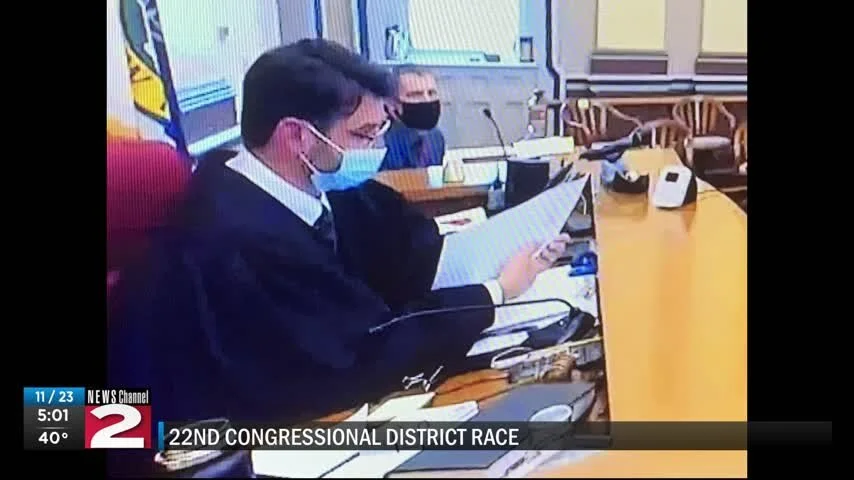NY-22 Minute: 3 big problems surrounding Oneida County election commissioners By Luke Perry
One day, this month or next, the NY-22 Congressional race will be settled. And the national spotlight and local politics will move on. The eight counties in the district will then have several months to reform their electoral processes to fix the problems experienced this year. The nature of election commissioners is a key focus, perhaps nowhere more so than in Oneida County, the largest and most electorally significant county in the district. Here are three big problems to consider.
1. The formal process for selecting commissioners is inadequate
Republican and Democratic Party leaders in Oneida County have their own processes for vetting and nominating election commissioners. This involves party chairs visiting with select party leaders and confidants to determine who should get the job. While a lot of thought can go into this, formal requirements are limited (county resident & party member), and there is no professionally objective and/or non-partisan component to the process.
Local parties should consider adopting a nominating committee, including non-partisan professionals with related expertise, who can help develop a list of necessary job qualifications and evaluate applicants. Someone with a college degree, particularly in a relevant field, like political science, public administration, or management, seems like a reasonable expectation for an election commissioner. A law background would be highly beneficial, as would experience with public communication. The primary job of any public official, but particularly election commissioners, is to follow the law, clearly and transparently.
Photo by WKTV
2. Commissioners and party leaders are hindered by mutual distrust and animosity
Electoral politics is a highly contested and often ugly game. It is understandable that prominent players on different teams may dislike one another, particularly during this current moment of hyper-partisanship and social division. Typically, however, these tensions are less common in local politics, where people increasingly know one another, and share a desire to make one’s community better, even with differing perspectives on how best to do so.
Unfortunately, that is not entirely the case here. Interaction between the two partisan commissioners in Oneida County (Rose Marie Grimaldi-R and Carolann Cardone-D) has been checkered at best. Per multiple sources, they often argue and exhibit distrust and dislike for each other. Some of this is an institutional structure that pits one partisan against another. Some of this is personal, in terms of how people in political power go about their business. Regardless, electoral administration should be technical, coherent, and precise. New York state must consider civil service reform, which is long overdue for this troubled system.
Oneida County Courthouse (wikimedia)
3. There is insufficient public access and oversight of election procedures
Some familiar with Oneida County elections shrug in response to this cycle’s debacle. They know a small amount of irregularity exists in every House election, but nobody cares because it does not impact the outcome. For instance, Oneida County has long used sticky-notes to identify challenged ballots, per multiple sources, supposedly due to previous directions by state judges to not mark ballots and risk them being disqualified.
Human beings are inherently prone to mistakes. These must be minimized through constantly refining policies and procedures. One silver lining presently is the light that has been shown on the flaws of Oneida County’s current system.
Election commissioners must work with local media to provide more access and information about what, why, and how they are administering elections. This is difficult and time consuming, particularly when under scrutiny, yet necessary to the job and a healthy democracy.
Luke Perry (@PolSciLukePerry) is Professor of Political Science at Utica College
Read the NY-22 Minute for timely and comprehensive analysis of the NY-22 campaign and politics







